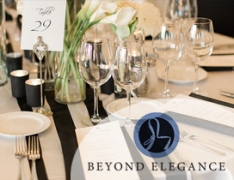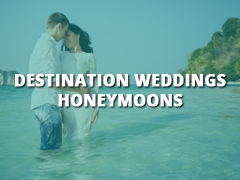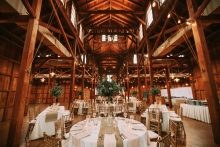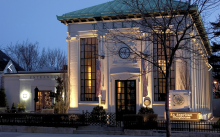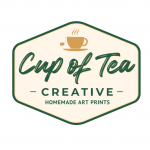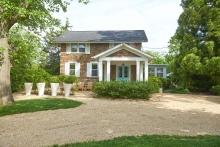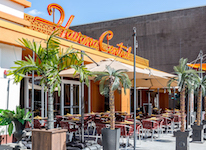Looking for answers to customer support questions? Click Here
Intro to Buttercream 101
'I hate buttercream!' How many times have I heard that?
'You mean, THAT was BUTTERCREAM????' I've heard that one just as often, after people taste a Marneycake for the first time. They're wondering why my buttercream is so different from the taste they've come to expect from the icing on their cake. Unless their mother or grandmother baked from scratch, chances are they've never tasted real buttercream before. Despite the simplicity of preparation and common ingredients, few people make their icing from scratch...and their buttercream from real butter.
As you can see, I've got quite a re-education project on my hands.
Most people are used to eating cakes from retail bakeries, which are almost always frosted in 'decorator's icing' (it's proper name, among professionals) -- which is vegetable shortening, flavoring, and sugar. That is not buttercream. If you've got to give it a similar-sounding moniker, at least spell it so people can see that it's not the same thing. Maybe we could call it 'butterkreme', so people know what it's sort of supposed to be like, but also know it's not authentic buttercream.
Basic buttercream is simply butter, powdered sugar, the flavoring of your choice, and a smidgen of cream for texture.
Vegetable shortening has nothing to do with it.
Some tell-tale signs that you're probably eating butterkreme, and not buttercream: your icing is pure, snow white. Unless you're doing a pure meringue icing (which has a totally different look and texture), whipped frosting is a very pale yellow, or even ivory. That's because of the color of the butter in it. If someone tells you they can do a pure white wedding cake in buttercream, know that that's not possible. Even with Swiss meringue or Italian meringue buttercreams, which are very high in whipped eggwhites, you're not getting a pure white buttercream as an end-product.
If you're getting wedding cake for a little more than a few bucks a slice, it's butterkreme. Vegetable shortening is not only far less flavorful than butter, it's far less expensive. Someone making a butter cake with buttercream icing can't meet those prices. It takes a commercial cake mix made with oil, and iced in butterkreme, to be able to price that low.
If you're planning a summer wedding, and you're told you can have a buttercream cake at your outdoor reception, you're getting butterkreme. Not only will buttercream present a food safety issue in due time, but an aesthetic one as well -- you'll have a melting cake before long.
If you're having an outdoor wedding reception, you've pretty much chosen fondant icing. Because I'm such a purist about using all-natural ingredients, working with fondant isn't my favorite. But, even I have to admit that there's definitely a place for it, and I want my brides and grooms to be happy with their cake. The last thing I want to do it have someone's cake ruined by being in the sun, or make guests sick by putting dairy icing in the sun for hours, when I recognize that circumstances require fondant. On the positive side, fondant seals in the moisture of the cake, and keeps it fresh. Another advantage is that you can achieve a beautiful, smooth finish with fondant, and mould it into shapes and designs that retain their shape.
You do NOT refrigerate a fondant cake, as that makes the fondant sweat. (Not a pretty sight.)
When it's time to use fondant, what makes mine different from most is that it's made from scratch, which is about as popular as grinding your own nutmeg (which, of course...I still do). Making fondant from scratch, I can control the flavor, and keep it from tasting like...well...plastic.
For a Hamptons outdoor summer wedding reception last year, I created a lemon cake. I flavored the fondant with pure lemon oil, so it actually had an appealing flavor. Then, I made another improvement: I rolled it out as thinly as possible. I've seen many wedding guests peel off fondant before eating wedding cake, and that's something I don't want people to feel they have to do before eating my wedding cakes. Thus, I use wonderfully high-end natural flavorings, and apply the fondant as thinly as possible.
Another thing about fondant: you can make it vegan. It normally contains gelatine, which is made from bone marrow. But that can be substituted for agar agar flakes.
Now, next time you have a slice of cake somewhere, I'll bet you'll look at it in a whole new way.
Once you've experienced genuine buttercream and its incredible velvety texture and pure, real flavor, there's no going back.
P.S. Here's some general cake knowledge: with most catering halls that include a cake in their wedding packages, you can have your own cake vendor bring in the cake, and you'll usually be issued a credit for the price of the cake (it's not free, they build the cost in) to use toward something else.

'You mean, THAT was BUTTERCREAM????' I've heard that one just as often, after people taste a Marneycake for the first time. They're wondering why my buttercream is so different from the taste they've come to expect from the icing on their cake. Unless their mother or grandmother baked from scratch, chances are they've never tasted real buttercream before. Despite the simplicity of preparation and common ingredients, few people make their icing from scratch...and their buttercream from real butter.
As you can see, I've got quite a re-education project on my hands.
Most people are used to eating cakes from retail bakeries, which are almost always frosted in 'decorator's icing' (it's proper name, among professionals) -- which is vegetable shortening, flavoring, and sugar. That is not buttercream. If you've got to give it a similar-sounding moniker, at least spell it so people can see that it's not the same thing. Maybe we could call it 'butterkreme', so people know what it's sort of supposed to be like, but also know it's not authentic buttercream.
Basic buttercream is simply butter, powdered sugar, the flavoring of your choice, and a smidgen of cream for texture.
Vegetable shortening has nothing to do with it.
Some tell-tale signs that you're probably eating butterkreme, and not buttercream: your icing is pure, snow white. Unless you're doing a pure meringue icing (which has a totally different look and texture), whipped frosting is a very pale yellow, or even ivory. That's because of the color of the butter in it. If someone tells you they can do a pure white wedding cake in buttercream, know that that's not possible. Even with Swiss meringue or Italian meringue buttercreams, which are very high in whipped eggwhites, you're not getting a pure white buttercream as an end-product.
If you're getting wedding cake for a little more than a few bucks a slice, it's butterkreme. Vegetable shortening is not only far less flavorful than butter, it's far less expensive. Someone making a butter cake with buttercream icing can't meet those prices. It takes a commercial cake mix made with oil, and iced in butterkreme, to be able to price that low.
If you're planning a summer wedding, and you're told you can have a buttercream cake at your outdoor reception, you're getting butterkreme. Not only will buttercream present a food safety issue in due time, but an aesthetic one as well -- you'll have a melting cake before long.
If you're having an outdoor wedding reception, you've pretty much chosen fondant icing. Because I'm such a purist about using all-natural ingredients, working with fondant isn't my favorite. But, even I have to admit that there's definitely a place for it, and I want my brides and grooms to be happy with their cake. The last thing I want to do it have someone's cake ruined by being in the sun, or make guests sick by putting dairy icing in the sun for hours, when I recognize that circumstances require fondant. On the positive side, fondant seals in the moisture of the cake, and keeps it fresh. Another advantage is that you can achieve a beautiful, smooth finish with fondant, and mould it into shapes and designs that retain their shape.
You do NOT refrigerate a fondant cake, as that makes the fondant sweat. (Not a pretty sight.)
When it's time to use fondant, what makes mine different from most is that it's made from scratch, which is about as popular as grinding your own nutmeg (which, of course...I still do). Making fondant from scratch, I can control the flavor, and keep it from tasting like...well...plastic.
For a Hamptons outdoor summer wedding reception last year, I created a lemon cake. I flavored the fondant with pure lemon oil, so it actually had an appealing flavor. Then, I made another improvement: I rolled it out as thinly as possible. I've seen many wedding guests peel off fondant before eating wedding cake, and that's something I don't want people to feel they have to do before eating my wedding cakes. Thus, I use wonderfully high-end natural flavorings, and apply the fondant as thinly as possible.
Another thing about fondant: you can make it vegan. It normally contains gelatine, which is made from bone marrow. But that can be substituted for agar agar flakes.
Now, next time you have a slice of cake somewhere, I'll bet you'll look at it in a whole new way.
Once you've experienced genuine buttercream and its incredible velvety texture and pure, real flavor, there's no going back.
P.S. Here's some general cake knowledge: with most catering halls that include a cake in their wedding packages, you can have your own cake vendor bring in the cake, and you'll usually be issued a credit for the price of the cake (it's not free, they build the cost in) to use toward something else.

Welcome New Vendors
- The Barn At Old Bethpage Discover the charm a...
- Jack & Rose Jack & Rose Floral D...
- Tellers: An American Chophouse Tellers: An American...
- Cup Of Tea Creative Unique Wedding Gifts...
- Speeches for Milestones The Big Day Has Ar...
- Long Island Bridal Expo Connecting Brides & ...
- 1 More Rep 1 More Rep offers Ap...
- Bellport Inn The Bellport Inn –...
- Snapphotto Snapphotto is one of...
- Fiddlers Dream Music Asher began classica...
- Havana Central Featuring real Cuban...
- Primerica Nelida Flynn Founded in 1977 on t...
X
Sign In
Sign in with Social Networking
By Signing in with Facebook or Google, You accept LIWedding Terms of use and Privacy Policy
X
Create an Account
Sign up with Social Networking
By Signing up with Facebook or Google, You accept LIWedding Terms of use and Privacy Policy
Already have an Account ? Sign In
X






